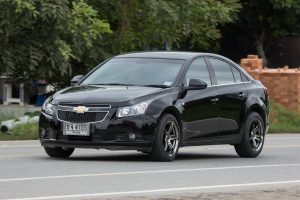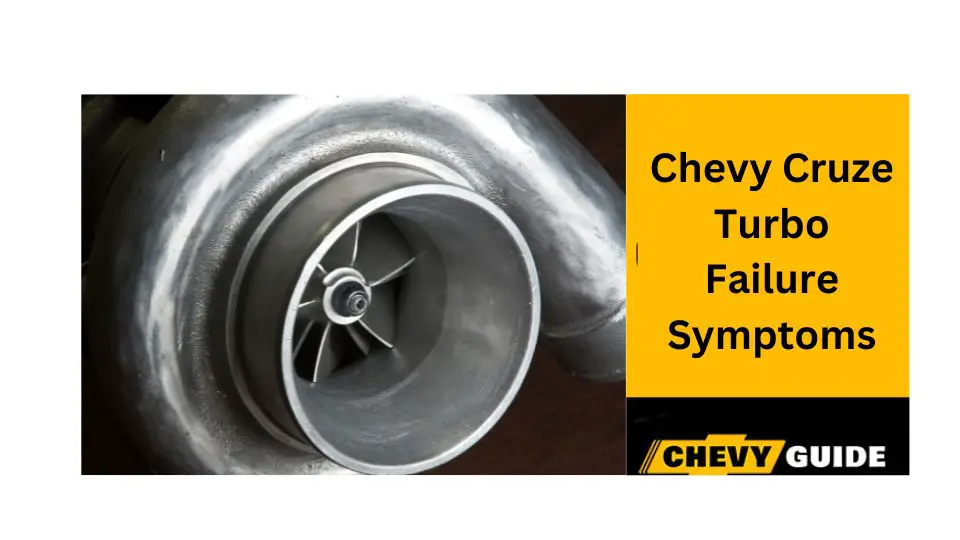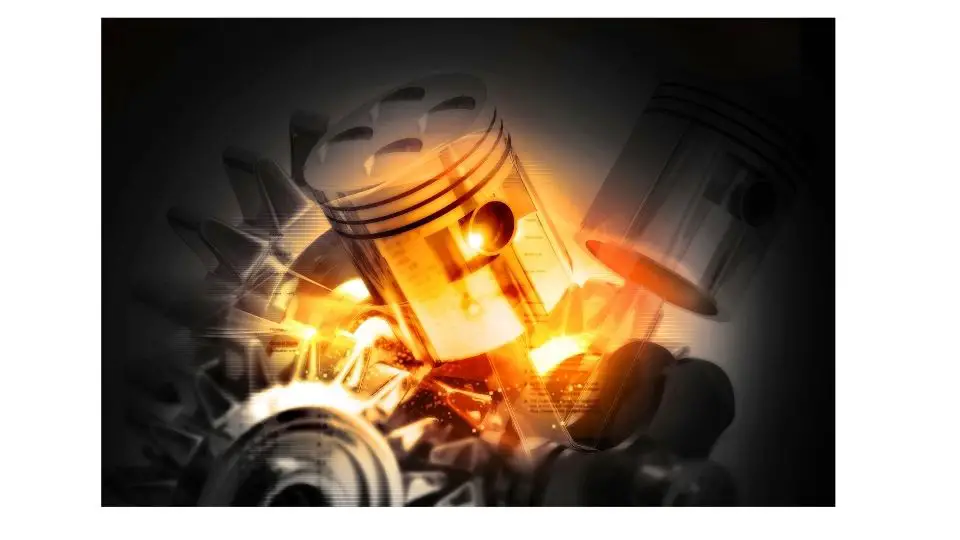Key points to highlight:
- Common reasons for Chevy Cruze turbo failures include issues with the actuator pin controlling the wastegate, leading to overboosting and potential damage.
- Symptoms of a failing turbo on a Chevy Cruze include significant loss of power, acceleration lag, grey smoke from the exhaust, excessive engine oil consumption, and the illumination of the check engine light.
- It’s important not to drive the Cruze with a bad turbo to prevent further damage to the engine and other components, necessitating timely inspection and repair or replacement of the turbocharger.
Chevrolet Cruze is a great vehicle, but like all cars, it can have problems. One of the most common issues is turbo failure.
In this article we are going to look at why these turbos fail and what are the main symptoms of a damaged turbo on a Chevy Cruze.

The function of a Turbocharger on a Chevy Cruze
A turbocharger is a device that is used to increase the amount of air that is drawn into an internal combustion engine.
This extra air allows for more fuel to be burned, which in turn increases the power output of the engine. On a Chevrolet Cruze, a turbocharger is used to boost the performance of the engine, providing additional power and torque when needed.
Why Do Chevy Cruze Turbos Fail?
Turbochargers are an integral part of modern engines. They allow for an increase in power and efficiency, but they also come with their own set of problems. One of these problems is turbo failure.
Chevy Cruze turbos often fail due to a problem with the actuator pin that controls their wastegate.
The wastegate is essentially a valve that regulates the flow of exhaust gases out of the engine compartment into the exhaust system. It’s used to prevent over boosting, which would cause too much pressure in your engine and could result in damage or failure.
On a side note, I wrote an article about the chevy Cruze turbo replacement cost, you can read it here.
Chevy Cruze Turbo Failure Symptoms
Here are the main signs of a bad turbo on a Chevy Cruze:
1. Significant Loss of Power
A sudden and significant loss of power is a sure sign that your turbocharger is failing. This can result in reduced acceleration and difficulty maintaining speed.
2. Lag when accelerating
A turbocharger is designed to provide boost only when needed, but when the turbo is failing, it will provide less boost. This can result in a lag when accelerating from a stop and can make it feel like you’re driving a car with a very small engine.
3. Exhaust Emitting Grey Smoke
Another Symptom of a failing/failed turbo on a Chevy Cruze is exhaust emitting grey smoke. This can result in a loss of power, but more importantly it is a sign that your turbocharger is failing and should be repaired as soon as possible.
4. Excessive Engine Oil Consumption
Since a bad turbo won’t be providing the much-needed performance boost, the engine has to work harder to produce enough power. This can result in excessive engine oil consumption, which will require you to fill up your tank more often than usual.
5. Check Engine Light
The check engine light is your car’s way of telling you that there is a problem with the vehicle. In this case, the light will come on because of a bad turbocharger.
In the video below, Chris, the host, details the process of troubleshooting and removing a turbocharger from a 2014 Chevy Cruze that was experiencing power loss due to various codes. This is part of the 2014 Chevy Cruze 1.4 turbo recall, where 172,000 vehicles were affected. There were a total of nine safety recalls for Chevy Cruzes 2014 model. This includes the air bags, electrical system, power train and steering.
He lists the tools needed and provides step-by-step guidance on removing components such as the heat shield, oil supply tube, and coolant lines. Chris encounters some challenges like seized bolts and inaccessible parts, which he overcomes using alternative methods like modifying tools or using vice grips.
Can You Drive Your Cruze with a Bad Turbo?
If you’re experiencing issues with your turbo on your Chevrolet Cruze, it’s best not to drive it as it can lead to decreased performance, increased fuel consumption, and can cause damage to other engine components.
Therefore, it is best to have your turbo inspected and repaired or replaced if necessary to avoid further damage to the engine and other components.
2014 Cruze 1.4 Turbo Recall
Conclusion

Tomas is a retired Chevy Auto Technician that brings decades of hands-on experience and expertise to the table. He’s also a father to two incredible daughters. He enjoys using his knowledge and experience to help you solve and find reliable information on Chevrolet vehicles. Whether it’s troubleshooting engine problems or providing tips for maintenance, Thomas is committed to helping Chevy owners keep their vehicles running smoothly and safely.




